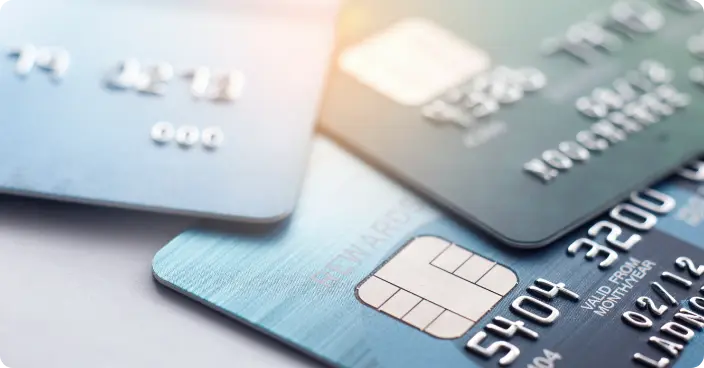A secured debt is a loan that is backed by assets which reduces the risk associated with lending. This means if someone defaults on a payment, assets, such as a property, can be seized as repayment.
Most debts fall into one of two categories: secured and unsecured. If you have debt, it’s important you understand which category it falls under and what can happen if you fail to make repayments as agreed.
The main difference between secured and unsecured debt is the presence or absence of collateral to protect the lender in the event you stop making repayments and default on your agreement.
In this guide, we’ll cover everything you need to know about secured debt, including what it is, how it works, and how it could lead to debt problems.
Contents
What is secured debt?
Secured debt is a debt that is linked to an asset (e.g. a home equity loan). This means that, if you don’t pay, the asset can be seized and sold to ensure the debt is repaid and your creditor receives the money they are owed.
This type of agreement is usually preferred by lenders as it means they have a strong chance of recovering some of the money owed if you don’t pay up as agreed as properties and cars typically sell quickly and for a good price.
For example, a property is usually used as collateral against a mortgage or a line of credit and a vehicle is typically used for a car loan. In some cases, a credit card can also be secured by a cash deposit.
In contrast, an unsecured loan is a type of credit agreement where the money borrowed isn’t backed by an asset (e.g. a personal loan). This means that, if you stop making payments, none of your belongings can be seized to recover the debt. Instead, you’ll usually face legal or enforcement action.
Debt Solution Finder
How do people lose control of their secured loans?
There are many reasons you might struggle to make secured loan payments, from financial emergencies to sky-high interest rates. We’ve outlined some of the most common reasons below:
Higher-risk loan agreements
The amount someone pays towards their monthly mortgage payments including interest is based on the borrower’s credit history and creditworthiness.
This means that, the less you earn and the lower your credit rating, the more you will pay in interest and charges, which can make you more likely to default.
Surging interest rates
Interest payments aren’t always fixed over the course of a mortgage, and rising interest rates on mortgages are also a common reason for debt repayment problems.
People might borrow more than they can afford to cover their monthly payments and end up having nothing left over at the end of each month.
Late payment fees and charges
Some people fail to make regular debt repayments because of a change in income, the loss of a job, or an unexpected expense that can’t be covered by their current financial situation.
When a borrower defaults on a payment, they are often hit with a late fee or surcharge, leaving them with more money to repay without the means to repay it.
Signs secured lines of credit could lead to debt problems
Admitting you’re in financial hardship isn’t always easy, but it is the first step towards a debt-free future. If you’re experiencing any of the following, you may be struggling with secured debts:
You’re being chased for payments by your mortgage lender
Falling behind on what is possibly the most important payment you must make each month is a sign of financial distress.
If you fail to stay on top of your payments, your bank or lender could foreclose your assets to be repossessed.
You’re cutting back on other expenses
If you find yourself cutting back on everyday essentials, such as the grocery shop or your utility bills, it could be a sign that you’re struggling with debts in other aspects of your life.
You feel the need to borrow more money
Is it becoming more difficult to make your pay packet stretch to the end of the month?
Finding yourself strapped for cash before your next payday can be a sign that you’re paying out more than you can afford and should consider a little financial support.
You’re hiding your financial situation from your family
It can be all too easy to stick your head in the sand and avoid talking about your issues, but secretive behaviour can be a sign that you’re not handling your problems as well as you could be.
You’re losing sleep
If you find yourself lying awake at night concerned about how you’re going to make your next mortgage or car payment, this can be a sign that you’re in financial distress.
Here’s an example of how we can help
Let’s say you owe…
CRA Debt
$13,020.92
Canadian Tire Card
$8,244.36
TD Bank Overdraft
$1,539.09
Utilities Arrears
$760.68
CashMoney Loan
$2,302.40
Student Debt
$3,923.50
Total amount
$29,790.95
Repayments reduced by 80%
*Monthly payments are based on individual financial circumstances.
What’s the difference between secured and unsecured debt?
Knowing the difference between the types of debt you possess is vital when searching for debt relief as this can have an impact on the support available to you.
Secured loans
It’s important to be aware that if you don’t keep up with your secured loan payments, your creditors have the option to seize your assets which could send you further into a debt spiral.
Secured loans are generally easier to qualify for than unsecured loans, mainly because the creditor has the assurance that they will be able to recover all or most of your loan debts should you fail to make payments.
This is particularly true for those who have poor credit or are rebuilding their credit.
Unsecured loans
Unsecured debt is any type of debt not secured by an asset, such as credit cards, medical bills, and payday loans. Without collateral, an individual has no way to reduce their debt level besides using savings or obtaining a loan.
However, while unsecured debts are usually a personal matter, it’s a problem that many people have had to deal with in the past few years.
This type of debt can become especially burdensome if you’re on a low income and don’t receive regular paychecks.
Common examples of secured loans
Mortgage
A mortgage is the most commonly cited example of secured debt.
According to industry figures, Canadians across the country are living beyond their means, with 41% concerned about their level of debt and mortgage debt is continually increasing.
By defaulting on your mortgage payments, or any other secured loan, you are at risk of losing your property.
Car loan
For many, taking on financial support to buy a car is a necessity – especially for those who are required to drive or work or have family commitments.
Recent figures reveal that more than half of new Canadian car loans carry 84-month terms. When dealing with long-term financing it’s important to recognize that falling behind on payment could lead to the loss of your vehicle and could have a negative impact on your credit rating.
Rent-to-own
Going down a rent-to-own route is an alternative to homeownership for those who can’t get traditional financial backing due to poor credit or don’t have enough money for a down payment.
If all goes according to plan by the end of the agreement, you’ll have repaired your credit and saved enough to secure a mortgage.
However, should you fail to keep up with payments you could lose the entire investment.
Tax or government debt
The Canada Revenue Agency (CRA) has a range of fiscal powers to reclaim any unpaid tax or government debts, including wage garnishments, investment seizures, and freezing bank accounts.
The CRA can also register a lien on a residential home should you fail to repay these debts.
Where can I go for secured debt relief?
Living with debt can be a stressful and isolating experience – especially if there’s a risk your home or car could be seized if you don’t pay. However, it’s important to remember that you’re not alone and there are thousands of Canadians in a similar situation.
At Farber Debt Solutions, we have decades of experience helping people on their journey to a debt-free future. While some solutions may not be suited to secured debt, such as debt consolidation and bankruptcy, we’ll review your circumstances and discuss all available options.
Our professional debt experts are on hand to discuss your financial profile, free of judgement, and guide you through the solution best suited to your needs. To talk to an expert today, call us for free on 877-375-6558.



